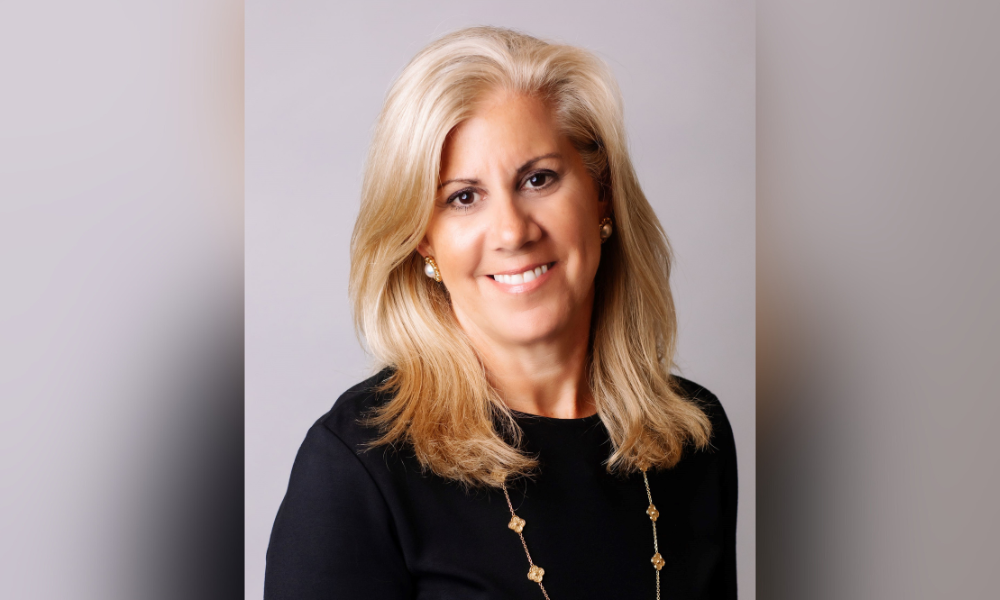

Women have never been more in control of wealth. So why do so many women feel financially insecure and worry about ending up in dire straits?
Despite women generating their own wealth through business and investments but also set to benefit from the Great Wealth Transfer, fears that they could end up losing it all – or outliving retirement savings – remains elevated.
InvestmentNews has been finding out more about what’s driving these concerns from Judy Leahy, senior wealth advisor at Citi Personal Wealth Management, who says women’s financial insecurity is often rooted in how they grew up and their early experiences with money.
“Historically, many women, were raised in households (and a broader societal context) where women were not included in financial decisions. That legacy still influences confidence levels today,” she explains. “Data from the last several years shows that men are more likely than women to feel confident about their finances. Despite this gap, we have found in our practice that women today are more proactive in seeking professional advice, which can ultimately lead to stronger long-term financial outcomes and can help shift the tide.”
The emotionally charged nature of childhood experiences requires careful messaging and a recognition that if someone grew up in a household where tight saving and frugality were heavily encouraged, they might feel uncomfortable or anxious making big purchases as an adult, even when they can afford them.
Leahy talks about the concept of ‘bag lady syndrome’ which is prevalent among even wealthy women.
“I have seen it among clients across the spectrum of wealth. It embodies the fear that, no matter how much you have saved or earned, you could still end up with nothing,” she says. “There is a rational basis for that fear. On average, women live longer than men, and many face a persistent gender pay gap – meaning they may have fewer lifetime earnings to put aside. Even women who have not experienced this barrier are aware of its long-standing prevalence, and that historical context impacts emotional security.”
The complexity of women’s finances is also impacted by the likelihood that they may take time out from their careers to raise children and – especially among the ‘sandwich generation’ – looking after aging parents. This can leave gaps in income, savings, reduced Social Security benefits, and limitation of career progression later on.
“Regardless of net worth, many women can still envision themselves as destitute or homeless in retirement. The fear of running out of money is a powerful motivator, and it underscores the need for proactive, flexible, and consistent planning,” Leahy says.
Women tend to have a more conservative approach to investing than men and tend to focus on long-term goals – such as retirement – rather than the thrill of chasing returns. Leahy says that financial planning should reflect this and focus on goal-based investing, aided by regular reviews and professional advice.
Concern about not having enough money can be exacerbated when high-net-worth women have much of their wealth tied up in illiquid assets, and by market volatility and elevated interest rates. Emotional biases play a key role and may result in investors holding excessive amounts of cash or delaying investing due to market volatility. But Leahy says external noise can be a barrier to growth.
“There is no one-size-fits all approach to addressing these feelings for investors,” she says. “Ultimately, it circles back to confidence. If you don’t feel confident in your plan—or you don’t have one—it can be easy to feel anxious, even if your assets say otherwise.”
Leahy says that advisors should make full use of the power of both asking questions and ‘active listening’ to help address the often deep rooted concerns of anxious clients.
“That means going beyond goals like “retire at 65” or “save for a home” and asking deeper questions: How did you grow up with money? What keeps you up at night? Who are you protecting or planning for? Those answers shape the emotional blueprint behind financial decisions,” she explains.
It’s also important that clients understand investment decisions.
“Real control comes when individuals understand why their portfolio is built a certain way and how it reflects their goals and values. Regular conversations with a financial advisor can help individuals build and fine tune their plan with this mindset at the forefront,” she says.
Wealth management among women is evolving and Leahy has seen changes during her time in the industry, with more young women today showing more intentional engagement with their finances and being more focused on saving, investing, and building retirement funds early. And they seek out financial education with purpose.
“In the next decade, I expect that confidence to grow even further,” she says. “Millennials and Gen Zers, more so than previous generations, want to understand how to activate their income with new opportunities for investment. With greater access to tools, transparency, and education than ever before, they are building the foundation for long-term financial strength.”

Summit Financial unveiled a suite of eight new tools, including AI lead gen and digital marketing software, while MassMutual forges a new partnership with Orion.

A new analysis shows the number of actions plummeting over a six-month period, potentially due to changing priorities and staffing reductions at the agency.

The strategic merger of equals with the $27 billion RIA firm in Los Angeles marks what could be the largest unification of the summer 2025 M&A season.

Report highlights lack of options for those faced with emergency expenses.

However, Raymond James has had success recruiting Commonwealth advisors.
Orion's Tom Wilson on delivering coordinated, high-touch service in a world where returns alone no longer set you apart.
Barely a decade old, registered index-linked annuities have quickly surged in popularity, thanks to their unique blend of protection and growth potential—an appealing option for investors looking to chart a steadier course through today's choppy market waters, says Myles Lambert, Brighthouse Financial.
